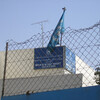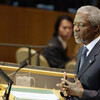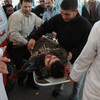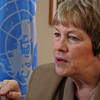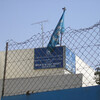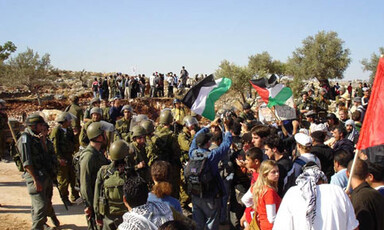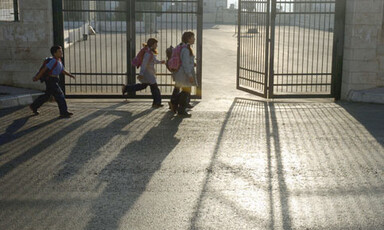
Palestinian children's right to quality education
23 November 2005
In a very poor neighborhood in the old city, in a tall tiny shabby building, sounds of children’s laughter can be heard as we walked up the 50 steep steps leading to the main hall of the Children’s Center. More than 100 girls and boys of various age groups were gathered in the main hall, listening to Sana’, the facilitator of the activity, giving instructions of the day. Main hall was full of excitement, it was the third day out of the six-day activity planned by Tamer institute, a local non governmental organization, supported by UNICEF, aiming at improving quality of education through creative reading and writing. Loud foot steps of kids running to their respective training rooms were heard. Read more about Palestinian children's right to quality education

